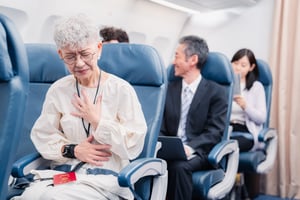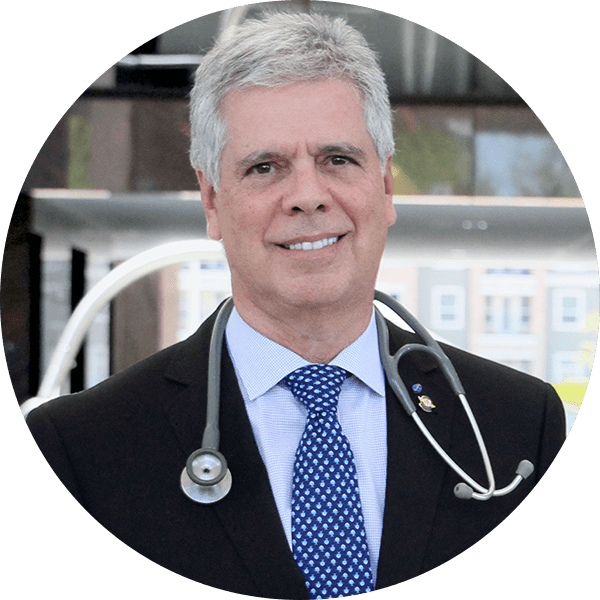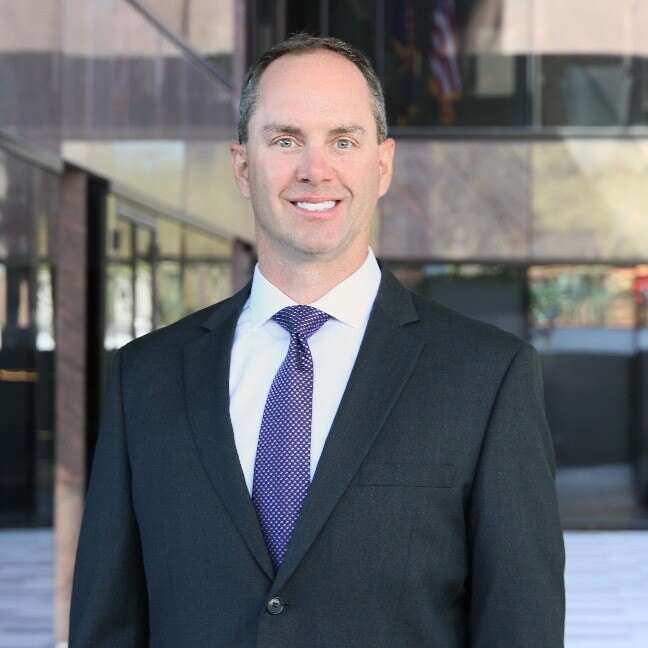
What The Largest Aviation Medical Database Reveals About Sick Passengers
Every day, MedAire physicians handle over 365 medical emergencies for airlines worldwide. In 2024 alone, our medical teams managed 258,585 assistance calls, resulting in 153,304 medical cases requiring expert intervention. Behind each call is a flight crew facing a medical emergency, often with limited resources and critical decisions to make about passenger safety and flight operations.
But what if we could analyze not just individual cases, but tens of thousands of them to understand the actual patterns of in-flight medical events? What would 77,790 medical emergencies tell us about aviation medicine?
That's precisely what a team of MedAire physicians and Duke University researchers set out to discover. Led by MedAire's Global Medical Director of Aviation Health Dr. Paulo Alves and Global Director of Aviation Medical Services Dr. Justin Devlin, working alongside International SOS Group Medical Director, Dr. Neil Nerwich and Duke University's Dr. Karan Kumar and Dr. Alexandre Rotta, this research team conducted the largest and most comprehensive study of in-flight medical events ever undertaken; and their findings, published in the prestigious JAMA Network, are reshaping our understanding of aviation medicine.
What Expertise Shaped This Groundbreaking Research?
Dr. Alves offers a unique perspective to this research, shaped by over 40 years in aviation medicine. Starting as an airline medical director at Varig and working as a cardiologist who pioneered AED implementation and fatigue management programs in Latin America, he explains: "I had the chance to live this topic of in-flight medical events from every possible angle. As a cardiologist, I've always been interested in understanding and addressing cardiac events that occur in-flight. This study, however, is very comprehensive. It is an important and most needed reference for everyone involved: airlines, regulators, medical volunteers, and, of course, the passengers."
Why Can Only MedAire Produce Research of This Scale?
When Dr. Devlin explains why only MedAire could produce research of this scope, the facts speak for themselves: "MedAire's global reach positions the company in a unique vantage point. The study sample includes airlines from nearly every continent; therefore, a very diverse demographic sample covering different routes, cultures, operational procedures, etc. Individual airlines or ground-based medical support providers cannot fully capture what is happening on a global scale."
The study analyzed 77,790 in-flight medical events across 84 airlines over two years, representing 31% of global commercial air traffic. To put this in perspective, our current operations handle more in-flight medical cases annually (59,131 in 2024) than most previous studies combined over multiple years.
How Does Real-Time Data Validate These Research Findings?
The study's findings align remarkably with MedAire's 2024 operational data, confirming the research's ongoing relevance:
2024 MedAire In-Flight Medical Events vs. Research Study:
| Category | 2024 | Study |
|---|---|---|
| Neurological | 37% | 36% |
| Gastrointestinal | 23% | 22% |
| Respiratory | 7% | 8% |
| Cardiovascular | 6% | 6% |
This consistency across different time periods and an even larger dataset reinforces the study's conclusions and demonstrates predictable patterns in aviation medical events.
When Do Medical Events Force Critical Diversion Decisions?
Aircraft diversions are among the most critical decisions in aviation, potentially costing airlines between $15,000 and $200,000 per incident and causing disruptions across entire networks. The study showed that only 1.7% of medical events lead to diversion, but these follow specific patterns.
Conditions Most Likely to Cause Diversion:
Dr. Alves addresses the business reality airlines face: "Airlines are very cost-conscious. Most operate on a very tight profit margin. To make decisions about equipment and crew training, they need to have a robust cost-benefit analysis. This study provides the basis of this sort of evidence-based approach to decision making."
What Do Dramatic Variations Between Airlines Reveal About Best Practices?
One of the study's most striking discoveries was the enormous variation in medical event rates across airlines: from 7 to 257 events per million passengers. Dr. Devlin explains what this reveals: "The variation among different airlines is more predicated on their internal protocols than a real difference in the percentage of ill passengers they carry. Given the volume of data collected from our operation, we can produce deep levels of analysis allowing the airlines to situate themselves against their peers and make informed decisions internally."
This variation suggests significant opportunities for improvement through standardized best practices, something MedAire's global perspective uniquely enables. "Thanks to our global perspective, it is not difficult to identify best practices and share them within the industry we serve," Dr. Devlin adds.
How Do Medical Volunteers Impact In-Flight Emergency Outcomes?
The study revealed fascinating insights about medical volunteers; those doctors, nurses, and paramedics who step forward during in-flight emergencies. While medical professionals assisted in 33% of events, they were involved in 79% of diversions and fatal cases.
Dr. Alves, drawing from extensive personal experience, explains this correlation: "I've been a volunteer in-flight on countless occasions. It is a very difficult situation because we don't have the resources we're used to working with on the ground. Volunteers are always concerned about the potential consequences of their recommendations, one way or another. Our data confirms what is expected from common sense. The medical volunteer working alone is always in an uncomfortable position, and a diversion is, from a personal standpoint, the easiest and safest way to proceed."
How Is Technology Bridging the Resource Gap at 35,000 Feet?
MedAire's In-flight App, used by 25 airlines handling over 50 cases daily and 10,000 talk-time minutes monthly, serves as a crucial bridge between aircraft limitations and medical expertise. Dr. Devlin explains its importance: "The advent of MedAire's In-flight App has been helping a lot in this regard. Typical strokes can be suspected from clinical presentation and demand immediate medical attention. The same applies to cases of chest pain. The App provides a step-by-step data collection that can be extremely helpful in characterizing heart attacks. Crews should therefore be trained to be comfortable in using the App, which will make data collection in complex cases very simple."
What Does Real Usage Data Reveal About Medical Equipment Needs?
The study tracked every medical intervention across nearly 78,000 events, providing unprecedented insights into what equipment gets used. Most frequently deployed interventions included:
Equipment & Resources Used to Treat the Passenger
Dr. Devlin highlights emerging needs: "The ECG is the device that helps in truly diagnosing some of the situations requiring immediate intervention. Gradually, more airlines are adding those now readily available miniaturized ECG devices to their medical kits. Crews should therefore be trained accordingly, so that they become proficient in obtaining good quality ECG tracings."
Dr. Alves, who has advised the FAA on medical kit contents for decades, sees regulatory implications: "Over the past few years, there were various initiatives in harmonizing medical kit regulations. But there is still a lot to be done. Nevertheless, MedAire has been identifying those gaps and working directly with the airlines to equip their kits with the necessary medications and equipment, based on what is really happening in-flight. The study shows externally what we've been observing internally routinely for quite some time."
How Will This Research Impact Aviation Medicine Regulations?
The research comes at a crucial time for aviation medicine regulations worldwide. Dr. Alves notes: "Different countries are in different stages of their regulations. In the United States, there is an evident need for updating the requirements, which were last revised in 2004. In Europe and other regions that use EASA standards, the kits are more complete, but, in my opinion, there are still some necessary adjustments. The paper could also help in this regard, showing that the need for a well-equipped kit is also necessary in short-haul flights for passenger safety and wellness purposes."
How Does Academic Excellence Validate Operational Expertise?
Publishing this research in JAMA Network Open represents a significant achievement for aviation medicine. Dr. Alves describes the rigorous process: "It is indeed a difficult path with multiple hurdles along the way. A paper accepted by this journal must be of high scientific quality. There is an initial triage, and those who survive that are subject to the peer review process. The reviewers ask clarifying questions, make suggestions, and not infrequently reject a candidate paper. Our partnership with Dr. Rotta from Duke University was a crucial element in guaranteeing the necessary academic standards. We were pleased our paper was the object of an Invited Commentary, something usually reserved for the articles deemed to be of significant impact."
📄 Published in JAMA Network Open
Peer-Reviewed Medical Literature
Research Study:
"In-Flight Medical Events on Commercial Airline Flights"
77,790 events • 84 airlines • 5 continents
Invited Commentary: Reserved for studies with significant medical impact.
Lead Authors: Paulo M. Alves, MD • Justin Devlin, MD • Karan R. Kumar, MD • Neil Nerwich, MD • Alexandre T. Rotta, MD
Open Access • Free to Read
What Does This Research Mean for MedAire's Industry Leadership?
This landmark publication represents MedAire's evolution from a medical response service to the definitive research authority in aviation medicine. Dr. Devlin reflects: "We feel almost obliged to share our unique expertise with the aviation and medical communities. MedAire has been publishing regularly over the years. But this was certainly one of the highest achievements."
How Will Evidence-Based Medicine Transform Aviation Safety?
This study sets a new standard for aviation medicine research and, more importantly, provides the evidence-based information airlines need for crucial operational decisions. Since medical events happen predictably across all flight lengths and routes, the question isn't whether emergencies will occur; it's whether airlines are equipped with the right gear, training, and support systems.
As our daily operations continue generating new data, MedAire remains uniquely positioned to advance aviation medicine through both immediate patient care and pioneering research. The combination of academic rigor and operational expertise ensures that future aviation medical protocols will be based on solid evidence rather than assumptions.
When the next medical emergency occurs, the response will be informed by the most comprehensive understanding of aviation medicine ever assembled.
Who Are Dr Paulo Alves and Dr Justin Devlin?

Paulo M. Alves, MD, MSc, FAsMA
Global Director of Aviation Health
Dr. Alves brings over 40 years of aviation medicine expertise, pioneering AED implementation and fatigue management programs in Latin America.
View Full Bio
Justin Devlin, MD
Global Director of Aviation Medical Services
Dr. Devlin oversees MedAire's global response center and MedLink operations from Phoenix, AZ. An emergency medicine physician with expertise in international medical operations.
View Full Bio